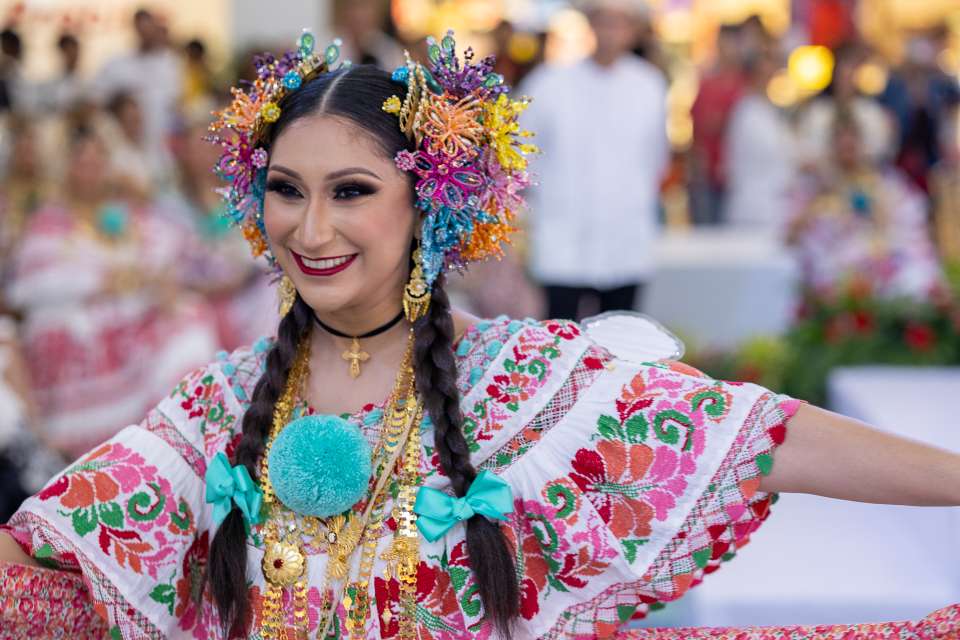The culture and traditions of our country have a lot to offer thanks to the talent and creativity of Panamanians who are inspired by their cultural roots that elevate our image internally and internationally. These elements are vital for tourism to grow and develop sustainably and the main reason why in this edition we have as Special Guest an artist, professional dancer, producer, director and technical specialist in Panamanian folk dances. Her professionalism has led her to work in places such as Washington, Buenos Aires, Madrid, Lisbon, Taipei, Santo Domingo, Cancun, Miami, New York, Barranquilla and San Jose.
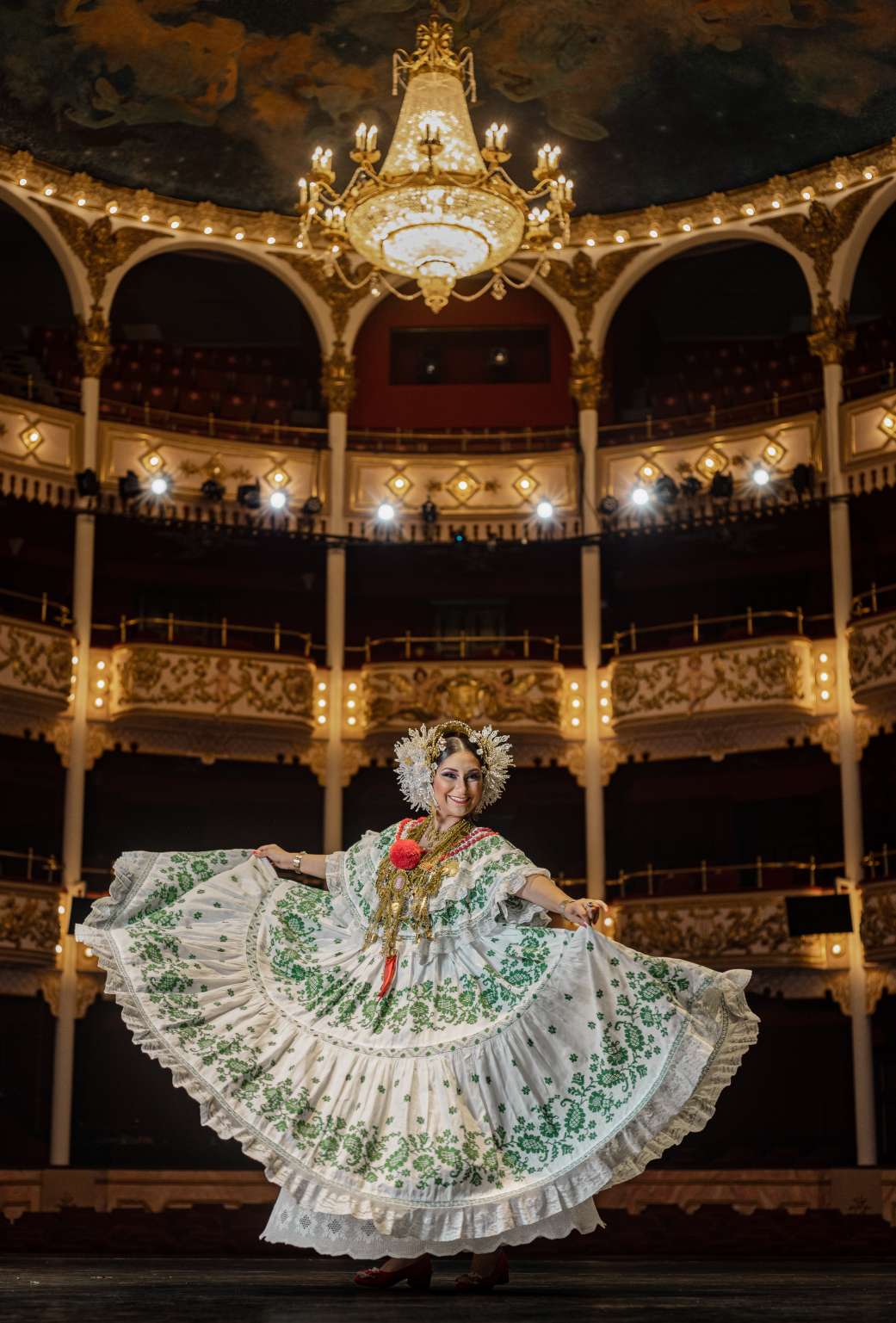
Daughter of the famous Panamanian artist of our folklore Ormelis Cortez and granddaughter of Escolastico “Colaco” Cortez, violinist and composer of the famous song Guarare, Guarare, Guarare, Odette Cortez carries Panamanian music and folklore in her veins. Even through she has z busy schedule sits down with The Visitor – El Visitante to share her vision of folklore and culture in Panama and how both can help elevate our tourism image internationally.
How important is it for women to get involved in Panamanian Folklore on a social and economic level?
“Women have a fundamental role in all areas of our society and that also includes art and culture. Speaking specifically of our Panamanian folklore at a social and economic level, we have seen over time that women have been an example of leadership, development, balance, stability, organization, administration, creativity and of course, custody and guardian of our traditions, being agents that expand everything that makes us proud and identifies us as Panamanians.
Women in the area of folklore have stood out not only for transmitting traditions, but also for building sustainable economies that have helped improve the quality of life of communities in all levels motivating other women to perform functions that support the growth Panamanian folklore in general, this being a great contribution to the cultural development of our country.”
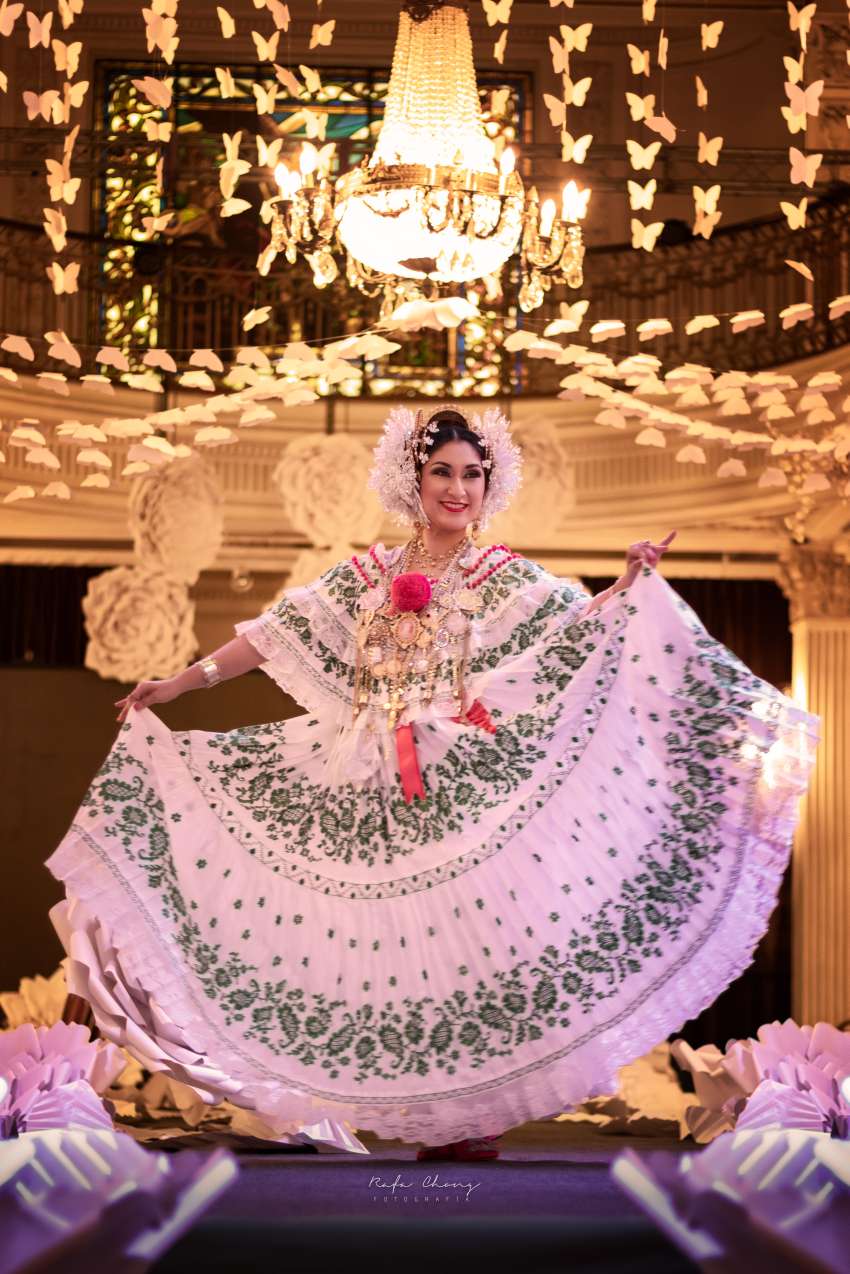
What are the folk dances of our country that people from both Panama and other parts of the world like the most?
“It is difficult for me to talk about which folk dances Panamanians like the most, precisely because if there is something that characterizes us, is our passion for art that involves or is directly related to our roots. If we go to the various regions and ask this same question, answers will be very diverse, since each local is a custodian, defender and promoter of their folklore.
If the question is personal as to which folk dances I like the most, I must say that the Negroid ones are my favorites, because in terms of artistic production they are very workable, from the choreographic composition to the musical arrangements.
However, at the level of Show Productions for state, tourist, commercial, social, charitable events, even international events inside and outside our country, the repertoire that we are most requested for is that of the Santeño type (dances from the Province of Los Santos), where women gracefully shows off the Pollera de Labores (also called Pollera de Lujo or Pollera de Gala) admired nationally and internationally for its 100% handmade construction. We also receive a lot of requests for the much-loved Diablicos Sucios, and of course we cannot miss the interventions where the Knight flaunts his virtuosity, skill and style dancing to woo and/or show off the lady, where joy, luxury and eye-catching come together to give way to artistic creations of great elegance and impact.”
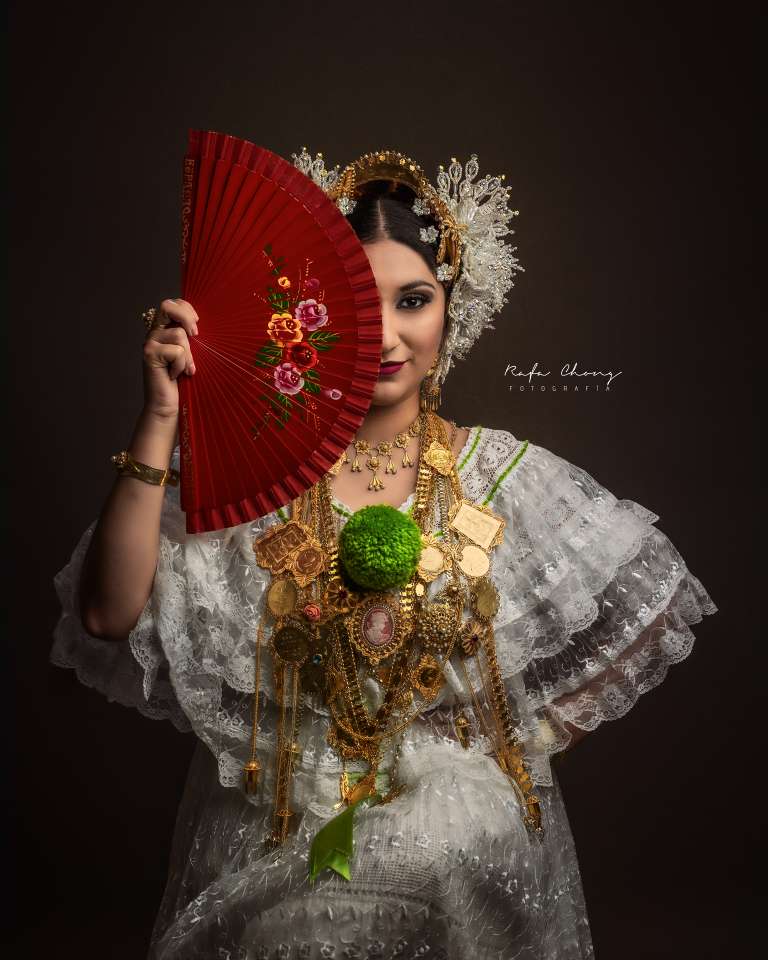
How important is folklore for a country on a social level and as an aid in its international projection?
“Folklore is directly related to the identity and authenticity of a country. It is a genuine way of getting closer to ourselves, who we are, where we come from. Folklore greatly influences our way of thinking and acting, therefore, they are closely associated with our way of life. Folklore also helps the economic, tourism, cultural and social development of a country.
On the other hand, through folklore we also reinforce ethical, moral and even spiritual values necessary for human beings. At the level of international projection, in addition to giving us that cultural identity that differentiates us from the rest, folklore represents a great vehicle for regional integration, promotion and visibility. Through folklore we can reach other instances, generating tourism, economy, investment and multiple social benefits for our country for the growth and development of various aspects of human life.”
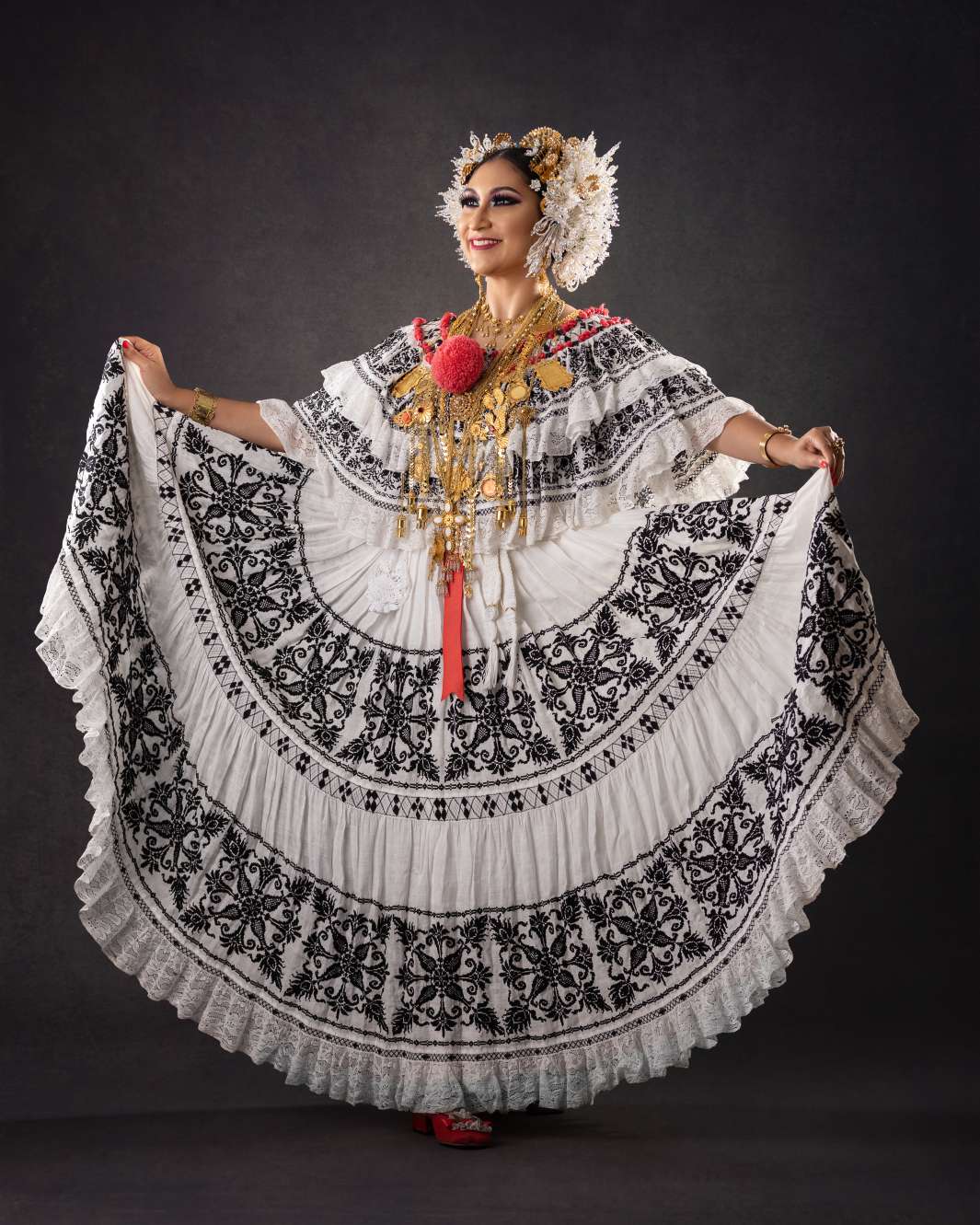
How much more can we do for Panamanian folk dances to okfurther elevate a tourist’s experience in our country and become an unforgettable visit?
“For Panamanian folk dances to further elevate a tourist’s experience, without a doubt, they must be part of the tourist’s agenda. But how can tourists know about this if nothing is strongly promoted about it. There is a void or perhaps a noise in that communication. I feel that companies specialized in tourism do not market this part, at least not with enough emphasys. You just have to do the exercise of finding out and you will find little or nothing about it.
What’s more, we could talk, debate, reflect on what to do, how to do it, and believe me, there will be a wide diversity of opinions, including mine. In other countries, and from experience I share it, tourism agencies sell packages that provide cultural experiences, including enjoying national folkloric ballet shows. It would not be a bad idea to observe and analyze what those countries do or have done that make their experience model for tourists so successful, to the point of creating in that tourist the intention of wanting to return.
From experience, I know that many of these countries have a large government and private company investment to create programs that have fixed folklore shows throughout the year, which are memorable and impressive for the tourist and of course for the national too.
Here in Panama, in that area, there is a lot to do. “
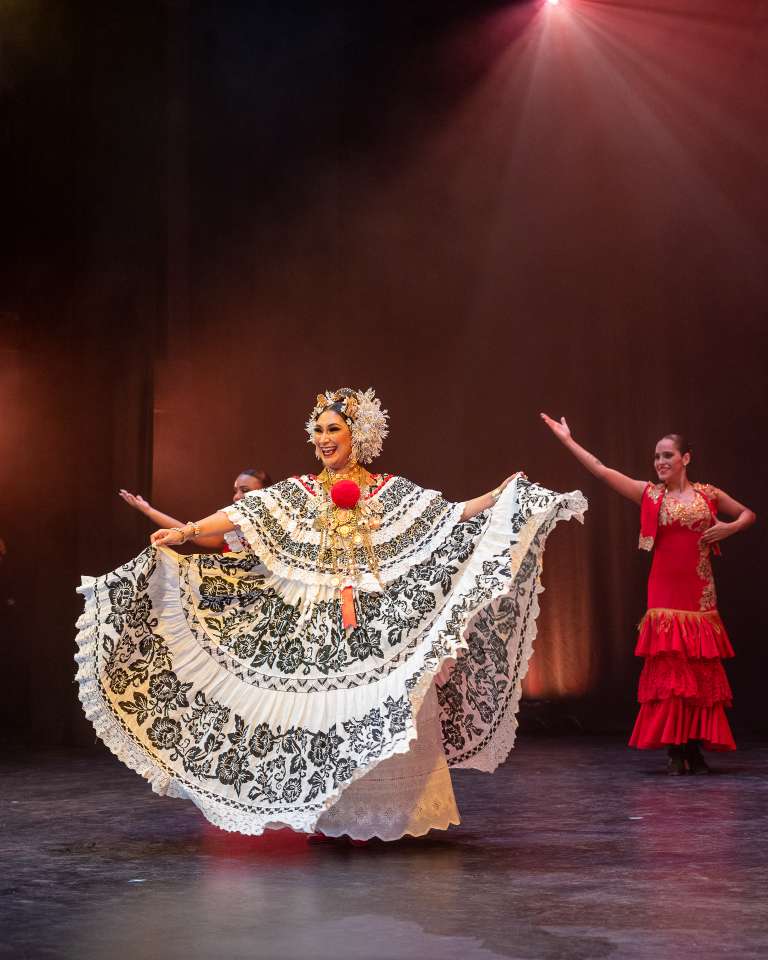
Within your international experience, how can we take our folk dances to other countries so that they connect with people in a new and refreshing way?
“The first thing is the will to do it. This implies a high economic investment. And I must say that at this point it is the same folkloric groups that make the effort to bring our folklore dances to other countries. Thanks to the efforts of their own members by selling raffles, doing bingo, saving an entire year, doing any number of activities, asking for donations, among others, they manage to raise the money to go internationally and represent Panama.
Our clothing is expensive, an air ticket is expensive, everything that involves high-level international representation is expensive. If these groups had good investment from the government and also from private companies, we could “connect more with people from other countries in a new and refreshing way” as you mention.”
In your opinion, which countries greatly promote their folklore and dances, and what do we need to achieve that level?
“In my opinion, from experience and knowledge, some countries that I can mention that greatly promote their folklore are: Mexico, Spain, Colombia, Dominican Republic, Japan and China. Surely there are others, but those I mention here have an incredible development in the projection of their culture through their folklore.
To reach that level, in my opinion, you need the will to want to make this a reality and I translate this mainly into economic investment, organization and promotion.”


